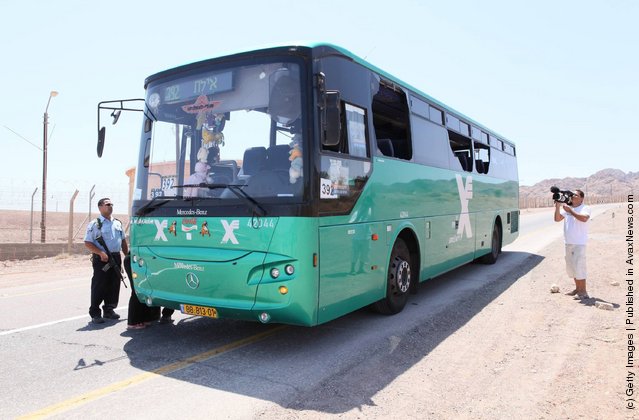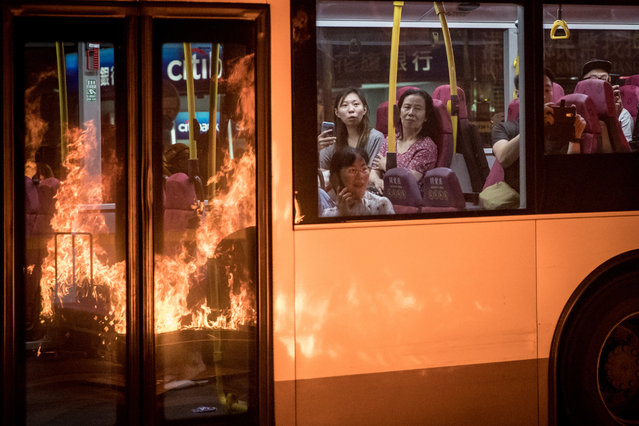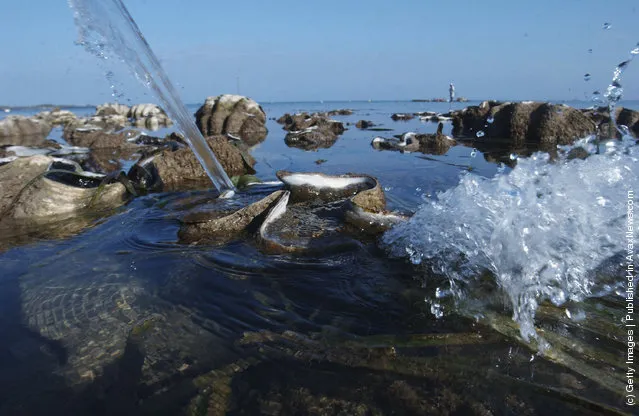
A competitor reacts as she takes part in the “Tough Guy” adventure race near Wolverhampton, central England, on January 29, 2017. The Tough Guy event, which is being held for the final time in its 30th year, challenges thousands of competitors to run a gruelling course whilst negotiating over 200 obstacles including: water, fire, and tunnels. (Photo by Oli Scarff/AFP Photo)
01 Feb 2017 06:30:00,post received
0 comments







